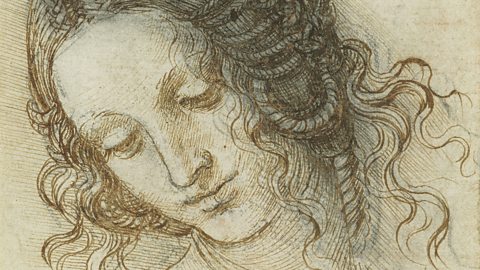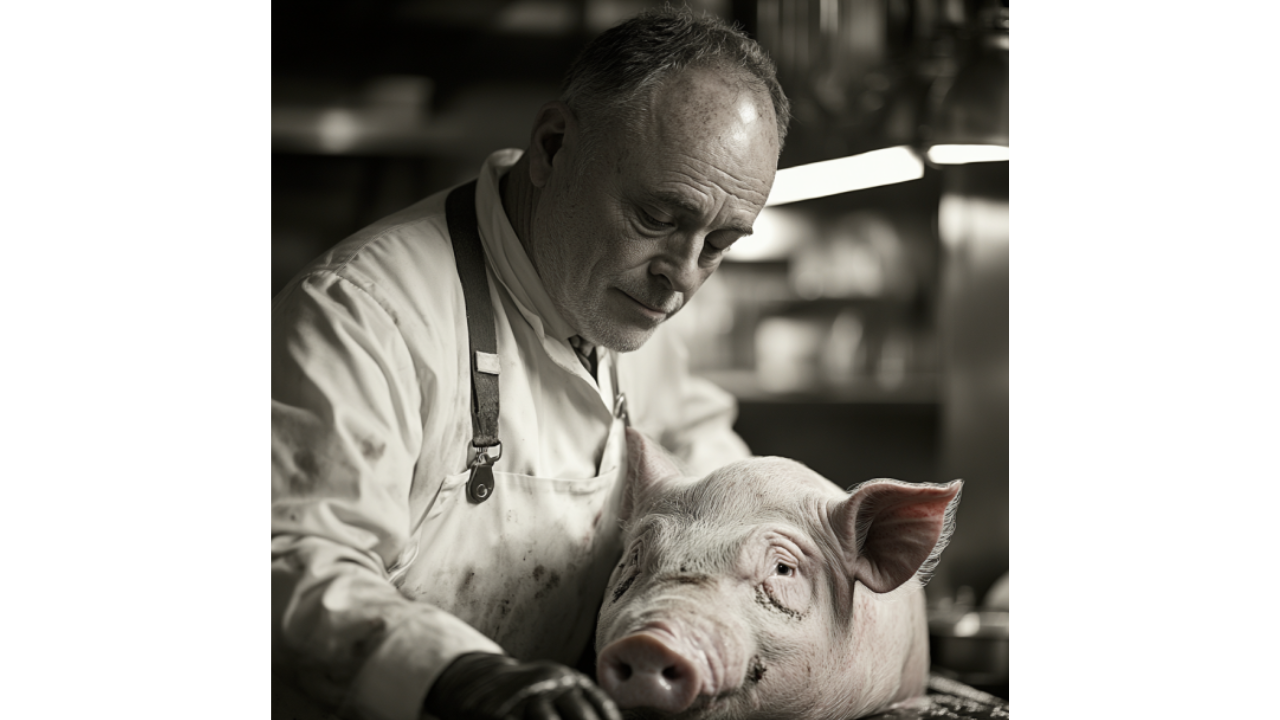On Power
We think we know what power is.

“The awful thing is that beauty is mysterious as well as terrible.”
“Beauty will save the world.”
Both quotes by Fyodor Dostoevsky, from The Brothers Karamazov and The Idiot, respectively.
The concept of beauty pierces through all centuries, cultures, and hearts.
We are drawn to it; we will risk life and limb and security and treasures to see it or savor it… even for a moment.
Its value is undeniable and impossible to measure.
In Greco-Roman times, Plato devised a triad of meaning —
The word pathos means ‘emotion’ or ‘experience.’
Do you remember the first time you heard something described as beautiful?
What was it?
Hang on to the idea of beauty as something we experience.

Salvador Dalí: Archeological Reminiscence of Millet's Angelus, ca. 1934, oil on panel, 12 1/2 by 15 1/2 inches.
COURTESY DALÍ MUSEUM, ST. PETERSBURG, FLA./© SALVADOR DALÍ, FUNDACIÓ GALA-SALVADOR DALÍ, ARTISTS RIGHTS SOCIETY 2023
There are three common ways to define beauty, all of which I think bear some truth:
One, beauty as related to an inner state of virtue or character; it is not static but can be developed over time.
Marcus Aurelius wrote, “Everything in any way beautiful has its beauty of itself, inherent and self-sufficient.”
Georg Wilhelm Friedrich Hegel wrote, “Beauty is merely the Spiritual making itself known sensuously.”
.jpg?width=2313&height=1301&name=2014-08-30%2010.54.30%20(1).jpg)
For me, the closest I’ve stood to the veil between this life and the next was on August 14, 2014, the day my firstborn son came into the world. I labored for hours. Sweat-slicked, trembling, swollen. Then in a burst of blood and other fluids, he came. It was the most beautiful moment of my life.
There is a beauty separate from how things appear.
Two, beauty as outside of ourselves: a reflection of the divine.
Hans Urs von Balthasar describes it this way: “The One, the Good, the True, and the Beautiful, these are what we call the transcendental attributes of Being, because they surpass all the limits of essences and are coextensive with Being.”
Keats — in his Ode on a Grecian Earn — wrote, “‘Beauty is truth, truth beauty’-that is all / Ye know on earth, and all ye need to know.”
.jpg?width=800&height=440&name=The-Sahara-or-The-Desert%20(1).jpg)
The Sahara or, The Desert - Gustave Guillaumet
I remember being 20 years old and standing in the Sahara desert at dusk. It felt like I could see straight to the curve of the earth. The wind softened at dusk, and the plain filled with the rustling sounds of wildlife. I blinked, and suddenly, the world was purple. I can hardly describe it to this day: stars exploded in the sky, and every blade of grass was painted violet. I barely breathed, basking in an otherworldly beauty.
There is beauty out there.
Three, beauty as a means to an end, usually to achieve power or superiority.
Foucalt wrote, “Search for what is good and strong and beautiful in your society and elaborate from there.”
Nietzsche wrote, “When power becomes gracious and descends into the visible — such descent I call beauty.”
.jpg?width=900&height=903&name=the-two-fridas%20(1).jpg)
The Two Fridas, 1939 by Frida Kahlo
When I was about 12, I performed in a ballet showcase. I lined up at the bar with the other girls. Our bony shoulders jutted out of black spandex; curling toes bent under pink leather. A white elastic band on my waist showcased my stick-straight spine. My tight-lipped teacher walked the line and stopped at me. “Everyone look at Joy’s posture.” They all did.
Beauty can = power.
(Twisted, that power can create villains and victims.)
I think these four thoughts are a reasonable amalgam of the many frameworks on beauty:
.jpg?width=1600&height=1245&name=monet%20(1).jpg)
Impression, Sunrise, an 1872 Claude Monet oil on canvas painting now housed at Musée Marmottan Monet in Paris.
“‘Beautiful’ things must have perceivable beauty at their disposal, they must seem and present themselves in a form that is capable of being liked. In this respect, it does not matter whether this ‘beautiful form’ of appearance belongs to the nature of something and its uncoveredness or whether it is its appearance or even a deceptive semblance. In order for something to seem to be beautiful, it has to have the mentioned ability to evoke such an impression.”
The first thing that came to mind when I read the above was this song lyric by Dean Martin:
“Well, I don't know why you thrill me like you do
I don't know why you, just do”
I Don’t Know Why (I Just Do) by Dean Martin - worth a listen: I Don't Know Why (I Just Do)
We call things beautiful on instinct.
“That may be the reason that we surround ourselves with beautiful things, why we want to be in their proximity, and why we yearn for them. That is why beauty is so often connected with lust, jealousy, or envy – with a possessive approach towards objects of fancy. The essence of enrichment and fulfillment is the future and its drawing close.” Source
Inward, outward, or as a means to an end — it is good to be drawn to beauty… and to perform acts of beautification on our own lives and the lives of people around us.
“The highest and most beautiful things in life are not to be heard about, nor read about, nor seen but, if one will, are to be lived.” Søren Kierkegaard, emphasis my own.
%2C%2520New%2520York.jpg)
Beauty makes us feel alive, but “Beautiful things do not automatically attract us in the same way as gravitation or magnetism affects our bodies.” Source
There is something metaphysical and inherently perceptive about beauty. This is part of its specialness — part of its allure.
In the philosophical discipline of phenomenology, we often discuss state of mind. I think this is super relevant to the consideration of beauty: our attitude and even mood in a moment may determine how we perceive beauty… or whether we perceive it at all.
"Everything has beauty, but not everyone sees it." Confucius
We are unquenchably hungry and thirsty for beauty.
AND
We can tire of the things we perceive as beautiful at first.
THUS
We will always want more.
___
That is a good thing. A human thing.
I leave you with this photo from Ansel Adams and quote from Kierkegaard:
![]()
Ansel Adams Self Portrait, Monument Valley, Utah, ca. 1958, printed ca. 1972
“Beautiful—indescribably beautiful—when the moonlit winter night is strangely like a fairy tale, a poem, or when the stars on a dark night twinkle in the enormous arch of the sky, or when echo waits in the still night for something to break the silence so that it can have the joy of echoing! Beautiful—rapturously beautiful, who can keep from surrendering to it—beautiful, to gaze out over the ocean, far, far into the distance, this distance which continually, captivatingly remains distance and continually seems to beckon you, so close that it invites you to let your gaze follow—into the distance.”
 READ THIS ESSAY
READ THIS ESSAY

Do you ever get something stuck in your head, playing on repeat constantly? Most of the time it is a line in a song, but this past week it has been a...